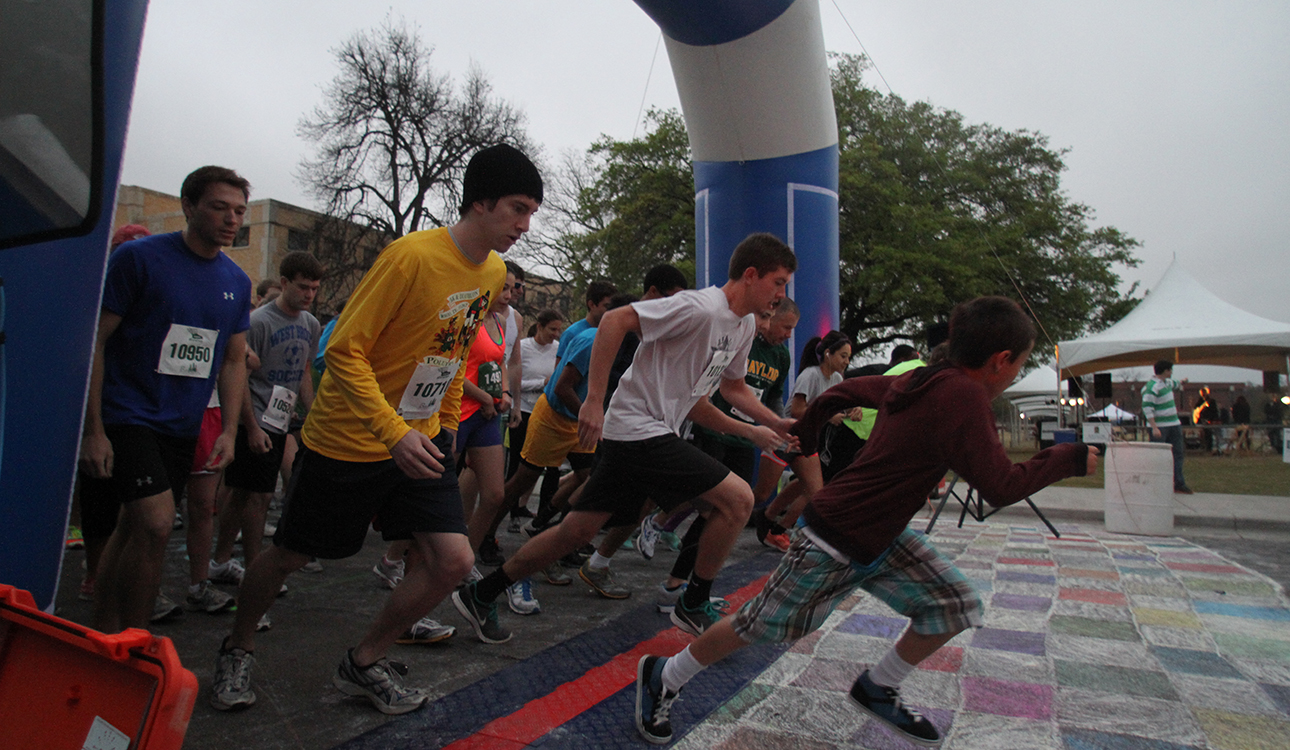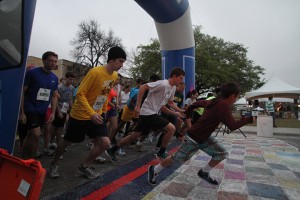Baylor students are leading one another toward a nutritious lifestyle while helping them train for Bearathon.
The Peer Nutrition Education group will host a free presentation Thursday evening about race nutrition for students interested in running the 5K of half-marathon Bearathon on March 22.
It will take place from 5 to 6:30 p.m. in 308 McLane Student Life Center. This will be the second Bearathon seminar hosted by the group.
Guest speaker Todd Millerd, running manager at Outdoor Waco, will be speaking about proper gear and shoes for training.
The peer educators will discuss training and nutritional preparation for Bearathon, including what to eat before, during and after the race. The program at Baylor also provides free one-on-one nutrition counseling for Baylor students.
The six student leaders for the program are all junior or senior nutrition majors. The counseling takes place throughout the semester and can range anywhere from one to five sessions.
Some common goals that previous clients have had include weight loss, weight gain, avoiding the “freshman 15” or broadening their knowledge of nutrition.
“A lot of people complain that healthy foods aren’t affordable,” said Houston junior Erika Zoellner, one of the six peer educators.
The peer educators give grocery store tours to help student find the right foods that fit their budget.
They also give tours of dining halls on campus to show students which foods are healthy during the counseling sessions. Peer educators and Houston senior Emily Travis use an app called CampusDish, which provides a nutrition label for all of the foods in the dining halls, to help her clients.
These educators also emphasize a system called MyPlate, which replaced the food pyramid in 2011. It divides the plate up into grains, protein, fruits, vegetables and dairy.
Zoellner said students who are doing long-distance running need to maintain a well-balanced diet, but add more carbs and protein in order to compensate for fuel lost during training.
Both Zoellner and Travis said anyone could benefit from the Peer Nutrition Education program.
“It’s free and it’s not an obligation,” Travis said. “It’s a great way to talk to someone who knows the field instead of believing the stuff you read on the Internet.”
Zoellner and Travis said some of their clients’ most common misconceptions concern fad diets such as the Paleo Diet.
According the diet’s website, The Paleo Diet “is based upon eating wholesome, contemporary foods from the food groups that our hunter-gatherer ancestors would have thrived on during the Paleolithic era.” This means that grains are eliminated from the diet completely.
However, Zoellner said a diet should be 60 percent carbohydrates, of which grains are composed.
“Your brain runs on straight carbs,” Travis said, which is why she said it is so important for college students to have carbohydrates in their diets.
Travis said another common misconception is that peer nutrition educators have an extremely healthy diet.
“I know the right things to eat, but contrary to popular belief, I still eat brownies and cookies,” Travis said.
She said it’s OK to eat unhealthy foods as long as there is portion control.
“God created all foods for a reason,” Travis said. “I don’t think it’s good when people try to completely cut out one food.”
Travis and Zoellner said the Peer Nutrition Education program is personalized for each client’s needs. Students can sign up in 305 of the McLane Student Life Center or email bupeernutrition@gmail.com.







